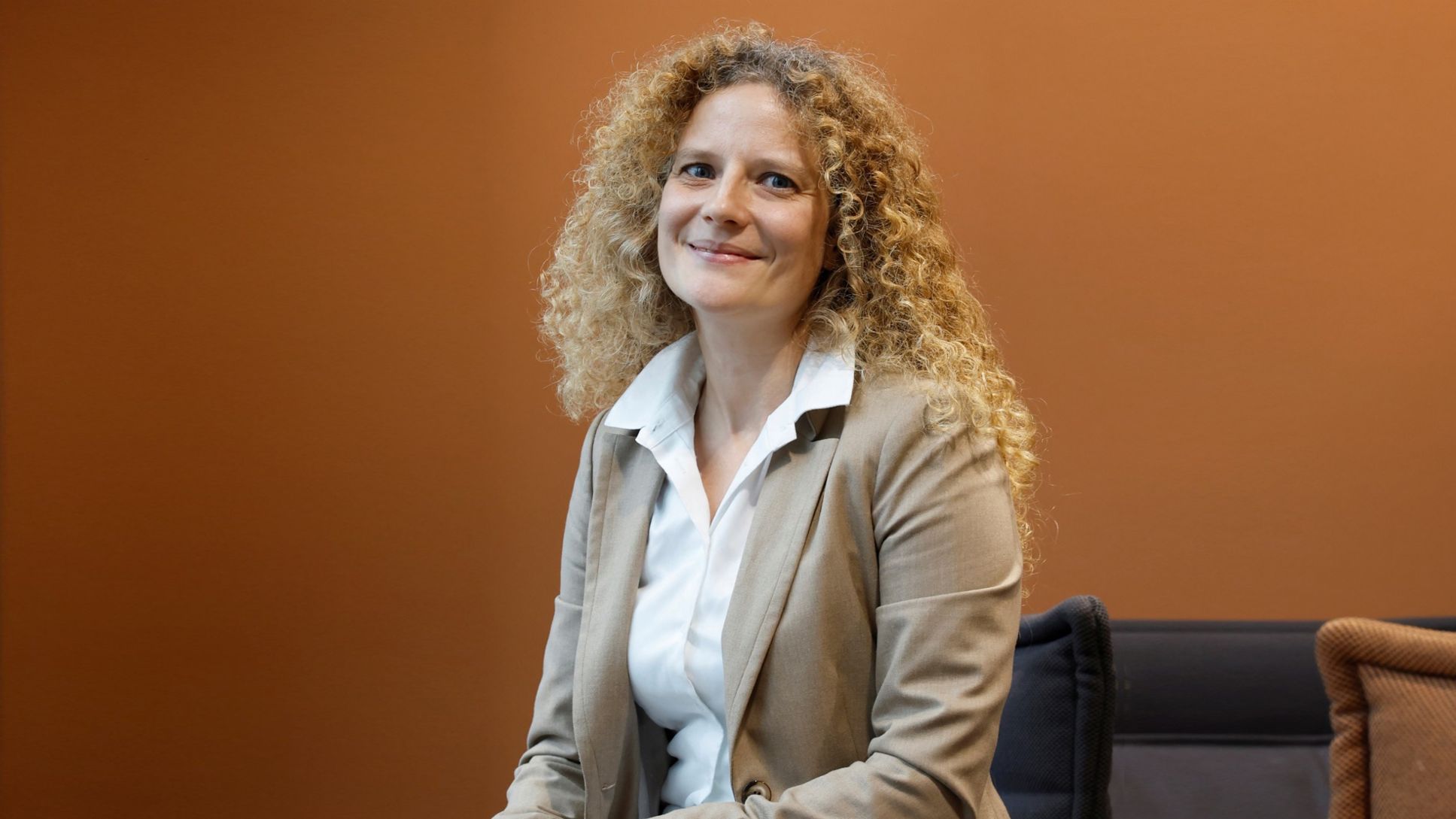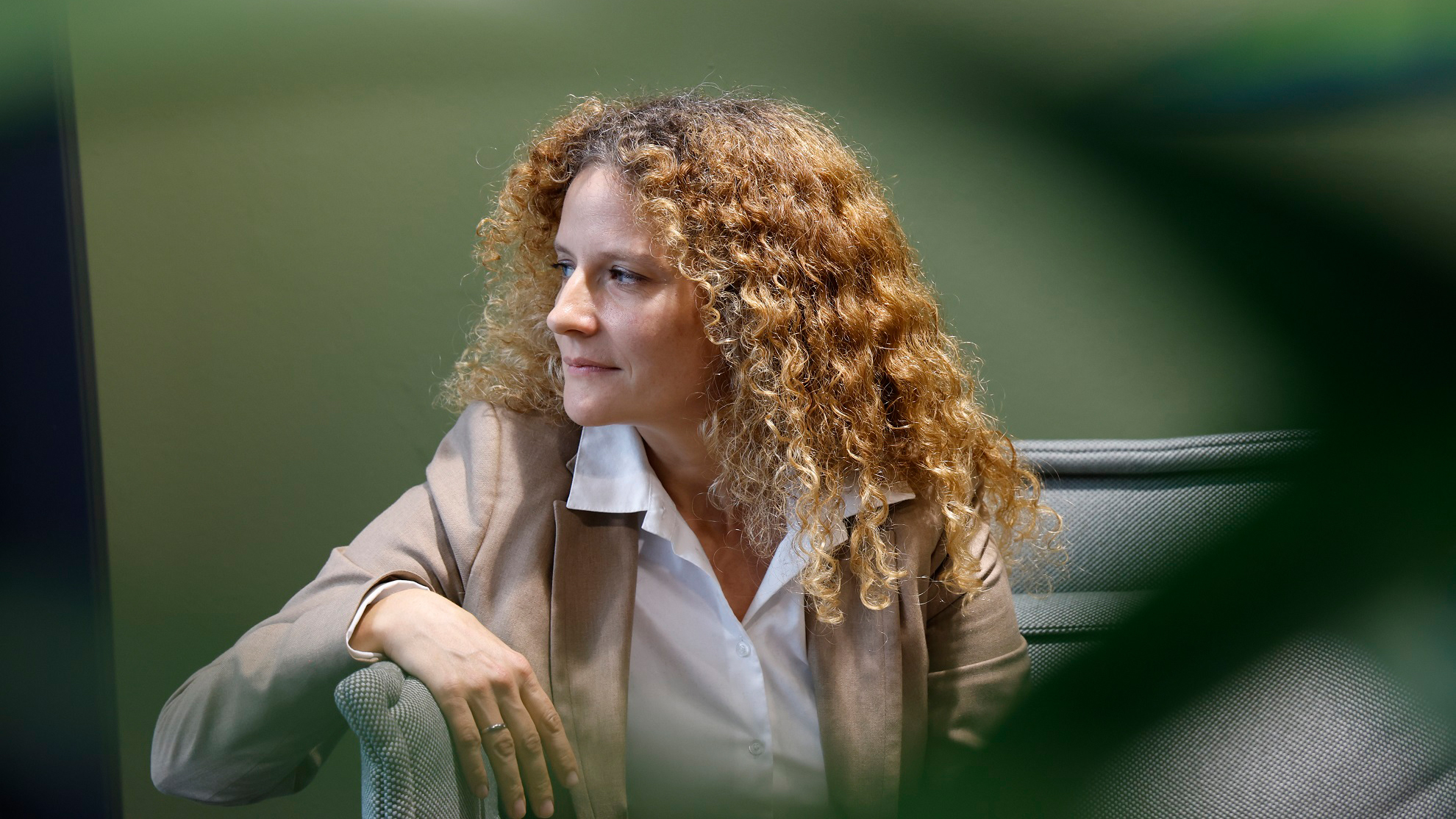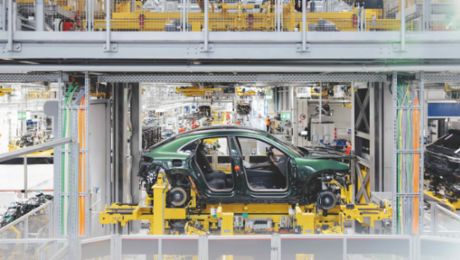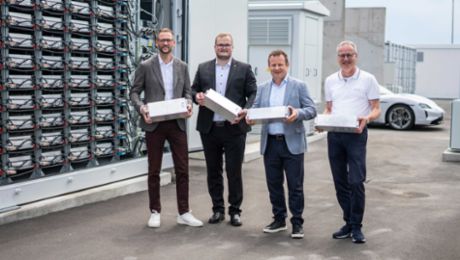Isabel, why is sustainability important to you?
Isabel Pokorni: I associate sustainability with terms such as durability or future viability. For me, acting sustainably means working in a way that allows us to continue to do what we enjoy tomorrow. This can also be applied to a company like Porsche. In addition to complying with current and new legislation, ESG ratings or the interests of our stakeholders, I believe that one thing should always be focused on: future viability. Sustainability goes far beyond pure environmental or climate protection – this is often misunderstood. The term encompasses much more. It can rather be understood as a principle of action that pursues the maxim of being sustainable or, more tangibly, "future-generation-friendly". In addition to ecological issues, this also includes social and economic issues.
In which areas can Porsche cause environmental impact?
Isabel Pokorni: Porsche's overall environmental sustainability dimension is very complex. Environmental impacts can arise, for example, from the construction and operation of our buildings and locations, production and development of our vehicles, logistics, procurement or even the distribution of our products. These value-added steps require resources such as energy, land and water, among others. In addition, pollutants, emissions, sewage or waste can also be generated.
How can you and your team contribute to a gradual reduction of environmental impact?
Isabel Pokorni: The ecological issues at Porsche are very diverse and spread across many areas. Our scope of responsibility includes the alignment of Porsche’s environmental and energy strategy, the development of environmental and energy concepts as well as environmental and energy management. In doing so, we consider and evaluate the environmental impacts already mentioned.
How do you go about this and how can you generate added value for Porsche as a result?
Isabel Pokorni: My team and I are responsible for the so-called environmental and energy management system, which serves as the organizational and procedural framework for ecological sustainability issues. This system works as a structure of processes, requirements and methods. We use this framework at Porsche's own locations and at selected subsidiaries to systematically and continuously reduce our environmental impact.
In addition, we primarily act as consultants for internal departments. They all have specific needs for their projects and approach us with their questions and evaluation points. These increasingly include environmental issues. The requests are becoming more and more complex and require the team to process them to a high level of quality. A current example is the procurement of a refrigerant system in the development department. There, we evaluated the ecological consequences of each alternative. We were able to finance the additional costs of procurement through our fund for the promotion of ecological pilot projects. Thanks to the close cooperation with the specialist departments and the possibility of supplementary financing, it was possible to procure the ecologically more reasonable system.
For some time now, Porsche has been pursuing the vision of a so-called "Zero Impact Factory" for its plants. What exactly does this mean?
Isabel Pokorni: This ecological vision describes production factories or even entire sites with greatly reduced negative environmental impacts. In the future, we want to reduce the ecological footprint bit by bit to a minimum. This can be achieved, among other things, by closing material cycles, with highly efficient plant operation and by increasingly avoiding emissions and pollutants. As of today, a complete reduction to "zero" is virtually impracticable to achieve. Nevertheless, we want to stick to our ambitious vision and are pursuing it at our production sites in Stuttgart-Zuffenhausen and Leipzig as well as for the development site in Weissach.
How can you determine where Porsche stands today in terms of the vision of a "Zero Impact Factory" and in which areas there is a need for optimization?
Isabel Pokorni: The vision can be operationalized via two components: through so-called "impact points" and based on a location checklist. "Impact points" are a specially developed measure of the environmental impact that is caused by the operation of Porsche locations. They work like a currency converter and allow us, for example, to compare the negative impacts of air pollutants with waste and identify focal points. In addition, the use of this metric allows us to take regional specifics into account. Here's another example to illustrate this: Local water shortage is more pronounced at our location in Leipzig than in Stuttgart-Zuffenhausen. For this reason, the criterion of water consumption is given a correspondingly higher weighting in Leipzig. The second building block for the vision of the "Zero Impact Factory", the location checklist, takes a different methodological approach. It contains almost 150 criteria and requirements for overarching topics, such as the energy quality of our buildings, the energy efficiency of plants or the handling of packaging waste. From this information, we can derive concrete measures and start implementing them.
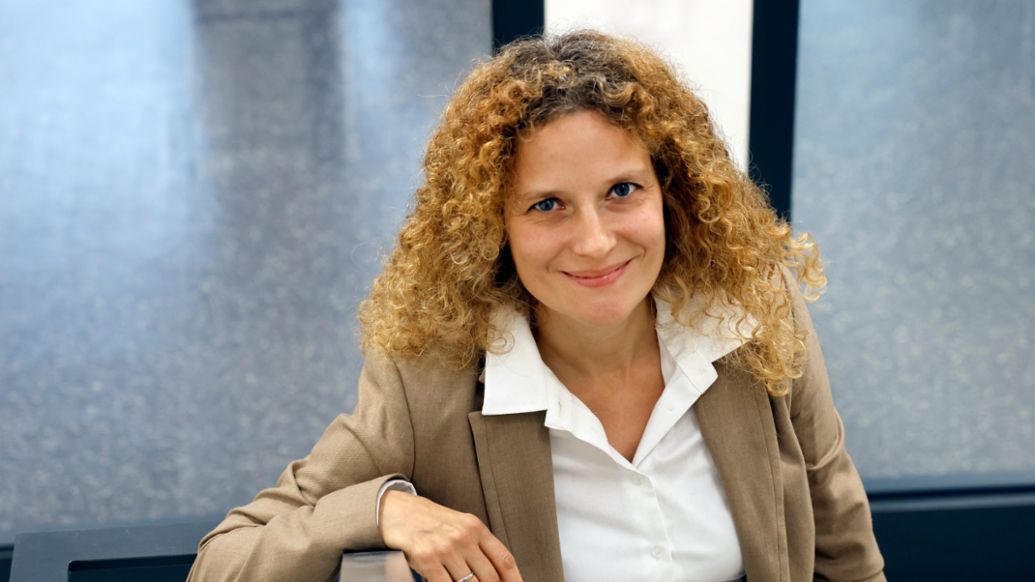
What measures can you highlight in this regard?
Isabel Pokorni: We were able to make a very large contribution a few years ago by converting the energy supply of the plants. At its sites in Stuttgart-Zuffenhausen, Leipzig and Weissach, Porsche now obtains green electricity from renewable energy sources as well as net carbon neutral biomethane for heat generation. We have thus taken an important step and now see it as our duty to follow up with others. That is why we continue to work on developing and implementing individual concepts for generating electricity from renewable energies, such as photovoltaic systems on the company premises.
With a recent and, in my view, groundbreaking corporate decision, we were able to set an important course for the future: From 2024, Porsche will pilot a new approach for six selected construction projects and provide them with a dedicated sustainability budget of six percent of the construction budget. This budget is to be used to implement recycling-friendly constructions, ecologically high-quality building materials, efficient systems for heating and cooling or additional innovative conversion concepts. From a purely economic point of view, these types of measures naturally require a slightly higher initial investment at the beginning, but they pay off over the long period of use.
What would you like to see in this area in the future?
Isabel Pokorni: Regarding the "Zero Impact Factory" vision, we are on the right track and are currently working on the guidelines to get closer and closer to major accomplishments. In recent years, more and more employees and departments have shown themselves to be willing to break through existing patterns and be courageous – driven by a high level of self-motivation. That's exactly what this topic thrives on, and that's why I would like to encourage everyone to do so. This is an important step in bringing about positive change. A good example of this is a jointly created project of an environmental and sustainability initiative with the department of motorsports which has already been presented in this series of interviews. Through mutual impartiality and openness, we were able to develop the entire strategic base and already implement first steps to reduce environmental impacts in motorsports. This has shown that if we question things and – if it makes sense – leave existing paths, then we can initiate change. I would like to personally promote this positive transformation and bring about a tangible change in the company with the daily commitment of my colleagues. Together with my team, I would like to set a good example here, because environmental and climate protection is important all of us.
Info
In the interview series "Perspectives on Sustainability", Porsche employees talk about their specialist subject areas. The interview with Isabel Pokorni is part 8 of the series.
